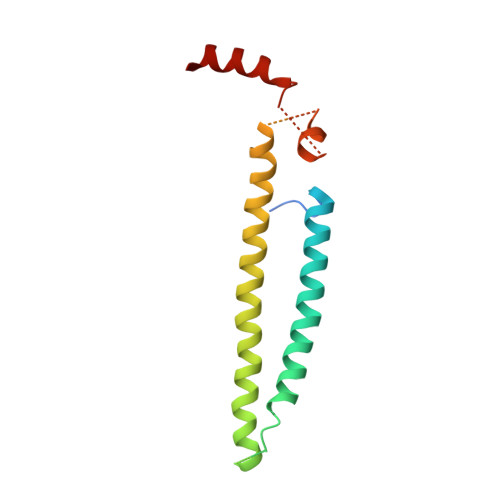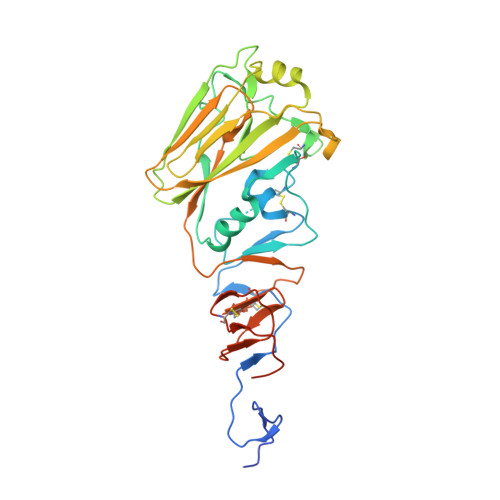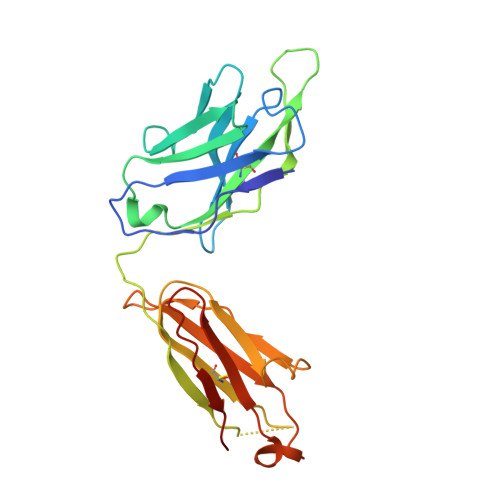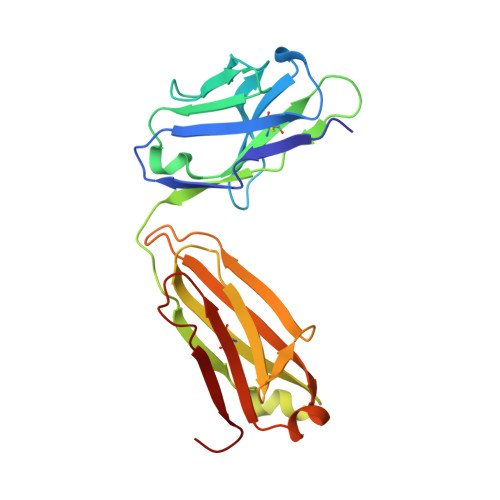Influenza immunization elicits antibodies specific for an egg-adapted vaccine strain.
Raymond, D.D., Stewart, S.M., Lee, J., Ferdman, J., Bajic, G., Do, K.T., Ernandes, M.J., Suphaphiphat, P., Settembre, E.C., Dormitzer, P.R., Del Giudice, G., Finco, O., Kang, T.H., Ippolito, G.C., Georgiou, G., Kepler, T.B., Haynes, B.F., Moody, M.A., Liao, H.X., Schmidt, A.G., Harrison, S.C.(2016) Nat Med 22: 1465-1469
- PubMed: 27820604
- DOI: https://doi.org/10.1038/nm.4223
- Primary Citation of Related Structures:
5IBL, 5IBT, 5IBU - PubMed Abstract:
For broad protection against infection by viruses such as influenza or HIV, vaccines should elicit antibodies that bind conserved viral epitopes, such as the receptor-binding site (RBS). RBS-directed antibodies have been described for both HIV and influenza virus, and the design of immunogens to elicit them is a goal of vaccine research in both fields. Residues in the RBS of influenza virus hemagglutinin (HA) determine a preference for the avian or human receptor, α-2,3-linked sialic acid and α-2,6-linked sialic acid, respectively. Transmission of an avian-origin virus between humans generally requires one or more mutations in the sequences encoding the influenza virus RBS to change the preferred receptor from avian to human, but passage of a human-derived vaccine candidate in chicken eggs can select for reversion to avian receptor preference. For example, the X-181 strain of the 2009 new pandemic H1N1 influenza virus, derived from the A/California/07/2009 isolate and used in essentially all vaccines since 2009, has arginine at position 226, a residue known to confer preference for an α-2,3 linkage in H1 subtype viruses; the wild-type A/California/07/2009 isolate, like most circulating human H1N1 viruses, has glutamine at position 226. We describe, from three different individuals, RBS-directed antibodies that recognize the avian-adapted H1 strain in current influenza vaccines but not the circulating new pandemic 2009 virus; Arg226 in the vaccine-strain RBS accounts for the restriction. The polyclonal sera of the three donors also reflect this preference. Therefore, when vaccines produced from strains that are never passaged in avian cells become widely available, they may prove more capable of eliciting RBS-directed, broadly neutralizing antibodies than those produced from egg-adapted viruses, extending the established benefits of current seasonal influenza immunizations.
Organizational Affiliation:
Laboratory of Molecular Medicine, Boston Children's Hospital, Harvard Medical School.


















